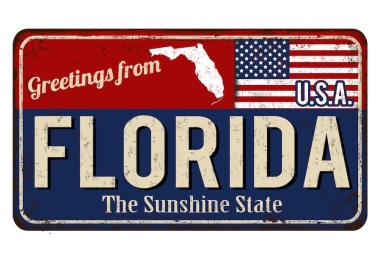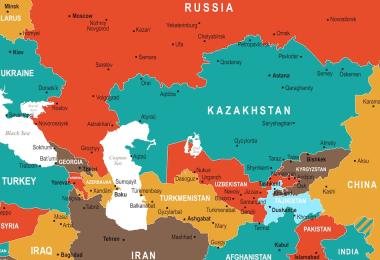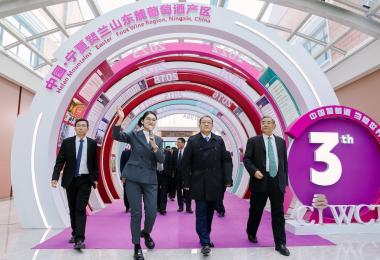The tasting room of Systembolaget’s headquarters in Stockholm is long and designer white, with tables running down the middle.
The day Meininger’s visits, the tables are covered in glasses filled with blends of Australian Shiraz. There are two sets per person, eight glasses in each set. What’s going on is a mock-up of a Systembolaget tender tasting – the process by which wines are chosen to be listed with Sweden’s alcohol monopoly.
Anybody who wants to sell their wines through Systembolaget needs to understand how this tasting works.
The tender process
Systembolaget identifies a specific need and then puts out a tender, calling for wine samples that fit the brief. The tender parameters are tight: the tender sheet on the table explains that this wine must come from South Eastern Australia or one of its sub-regions. It must be bag-in-box, and it must be a Shiraz blend: acceptable blending partners include Grenache and/or Mourvèdre, or Sangiovese, or Durif.
The wine must have a specific sensory profile: “Fruit, flavour intense wine with characters of red and dark berries with a hint of spice. The wine must have a well integrated toasty oak character.” There is a price specified: 219.00SEK to 239.00 SEK ($26.00 to $28.00) and a required volume. Not only that, but the producer must have been mentioned in James Halliday’s Australian Wine Companion, editions 2014 and 2015.
Jonas Röjerman, head of product quality control, says too many would-be suppliers ignore the tender specifications. If a tender calls for a pale rosé with a specific sugar level, for example, many producers just haul out whatever rosé they have on hand and send it in, hoping that it will do so well in the tasting.
But wines that don’t match the Systembolaget tender parameters are disqualified. In this line up, one wine smells distinctly like it has a Cabernet Sauvignon component. It’s a nice enough wine – but Cabernet is not one of the specified blending options, so it’s out.
Expert tasters
Systembolaget tasting panels typically consist of buyers, but may include others from the organisation. Tasters are all experts who have proved they can correctly identify elements such as the residual sugar level, and faults. Röjerman says they are constantly tested. Every lineup of wines has duplicate wines in it, which the tasters must identify. The points they award must be consistent every time. “I can tell when someone’s been on holiday,” says Röjerman. “For a few days, their tasting is not so accurate.”
Buyers also travel extensively to their wine regions. Occasionally they become so expert, that they can tell immediately who has produced a wine from that region.
“In that case the buyer for that region is excluded from the tasting, because they know too much,” says Röjerman.
Once the tasting is complete, everyone is asked to give their results. It’s embarrassing stuff, because it’s immediately clear that many of the tasters couldn’t pick the doubles. “You would not be able to be on our expert panel,” says Röjerman bluntly.
Every producer who has entered a wine into a tender will get feedback – and sometimes Systembolaget gets angry feedback on its feedback, for example when a Rioja producer sends a very high quality classic wine to a tasting that specifically asked for a modern style of wine. “A high quality wine that doesn’t fit the profile won’t be chosen,” said Röjerman.
Even after the tasting is finished and the wine is chosen, the process isn’t over. Systembolaget always check that the wine that arrives is the same that was submitted for the tender. “A lot of producers send in a sample when they don’t have the volume,” says Röjerman. “They think if they get the tender they can buy the wine in later – but we check.”
Ann Burgaz, managing director of The Wineagency, a leading Swedish importer, says that the more pre-tender homework that producers do, the better. “When possible, let the buyers taste pre-samples for upcoming tenders, in order to better understand what Systembolaget is looking for,” she says. “This can be done well in advance.” Burgaz adds that it’s something an importer can arrange.
The end result
Tasting over, the panelists head to a Systembolaget store in downtown Stockholm. It’s clean and bright and full of high-quality wine. But, sighs a buyer, the Systembolaget system isn’t perfect. Listing wines based solely on quality can cause issues with consumers: sometimes the big brands don’t make it through the tender tastings, because the quality isn’t high enough. But Swedish consumers, like consumers elsewhere, want to see well-known brands when they go shopping. It’s a conundrum that Systembolaget haven’t quite solved yet.
What Systembolaget have got right is a scrupulously fair system that’s transparent and quality focused. The message is: if you want to get your wine listed with the biggest buyer in the world, follow the rules. It’s that simple.








